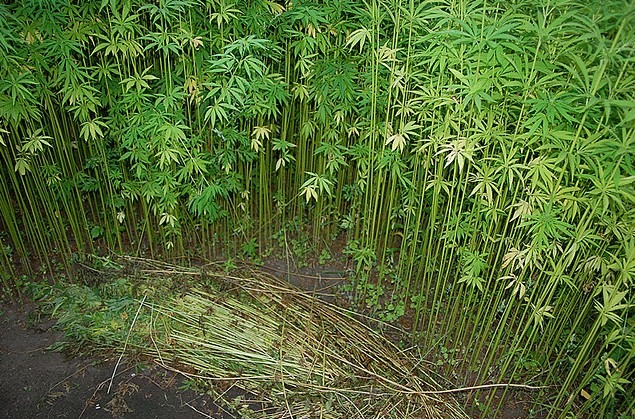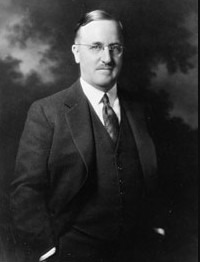In the words of the prominently celebrated Reality TV Show Star, Kim Kardashian, “Anyone that knows me knows I am obsessed with CBD everything!”. Another quote can be taken from the renowned, award-winning actor Tom Hanks: “The benefits of CBD oil are unlike any pill or medication can do.” Lastly, Anthony Pettis, a professional mixed martial artist, has said that “CBD is an integral part of my training and post-fight regimen expediting my body’s natural healing process.”
There are simply so many individuals that have attested to the benefits CBD claims to have, from these popular figures to scientists, medical doctors, and distinguished experts. But what is CBD, and who discovered this wonder substance?
CBD stands for Cannabidiol. It is a phytocannabinoid, meaning the molecule was synthesized from the plant and is one of the 113 cannabinoids found in the Cannabis sativa, Cannabis indica, and Cannabis ruderalis plant.
Based on research, CBD has shown positive effects on anxiety, pain, and certain disorders, by alleviating the effects. It also has effects on the cognition and movement of the user.
Interestingly, in studies conducted, it can be a probable treatment for epilepsy, help in acne management, and possibly prevent cancer cells from growing. Some researches investigate the use of CBD oil for stroke, multiple sclerosis, Parkinson’s disease, and Alzheimer’s disease.
Cannabidiol can be taken in numerous ways, such as inhalation through vapor or smoke, or via the mouth. There are also CBD oils, which entail in its description that only CBD is its active ingredient, excluding THC. This reduces any paranoia or euphoria effects. These can also be found in special offers like on Black Fridays.
Unlike the other reputed cannabinoid found in the Cannabis Hemp and Marijuana plants, CBD does not have the same psychoactivity THC can give its users. This includes the effects THC, also known as tetrahydrocannabinol, can have on a person.
Some researchers have shown that CBD has more positive effects than THC and can weaken the negative impact THC has on people. This means that CBD can act as a balancing agent, to control the psychoactive effects THC gives people.
To know who discovered Cannabidiol, it’s also vital to understand the history of how this fascinating chemical substance has started off.
Throughout the past, Cannabis has already had a reputation for serving as a valuable therapeutic source. Still, because of the limitations of technology and scientific evidence, it wasn’t as highly regarded as some of what was then considered as Modern Medicine.
The first documented use of medicines derived from this plant goes as early as 2737 BC in China, where their emperor, Sheng Nung, would sip tea that was cannabis-infused. He did this to treat the pain and discomfort brought by malaria, gout, and rheumatism.
There are claims that the second-longest reigning British Monarch, Queen Victoria, had also used CBD during her reign, which was halted in 1901. She used them to ease her menstrual cramps.
Some of the very first attempts to isolate Cannabis’ active ingredients were made during the 19th century. This was reflected in the paper written by Roger Adams, Madison Hunt, and J.H Clark.
In 1839, William B. O’Shaughnessy, an Irish medical researcher, and physician published his research that discussed Cannabis’s positive and therapeutic effects. Because of this, William B. O’Shaughnessy somehow pioneered Cannabis’s studies because his paper had encouraged more researchers to consider Cannabis’s medical use.
In 1940, finally, the first individual cannabinoid was discovered and identified by Robert S. Cahn, a British Chemist. He had described the fully formed structure of the chemical substance, Cannabinol (CBN).
American Chemist, Roger Adams, made the most significant contribution to the history of Cannabidiol because, in 1942, he successfully isolated CBD. Because of his research, THC was also discovered. Since he was a pioneer specifically for CBD, the discovery of Cannabidiol can be attributed to him.
In 1963, Raphael Mechoulam, an Israeli professor, made known the stereochemistry of CBD. The next year, his team had also publicized the stereochemistry of THC. Today we even have options like these CBD gummies from UK as well.
Some studies have recently even revealed that CBD can be given to animals like dogs.
To this day, several concepts and ideas about CBD, its effects, its comparison to THC, its chemical structure, and so much more are being studied, clarified, debunked, or reinforced. As the world grows in the fast pace of technological advancements, it is improving the research on Cannabis, THC, and CBD, who knows what else the world of science can reveal about these compelling wonders?
Related Links:
https://www.healthline.com/health/cbd-oil-benefits#how-to-useit
https://medium.com/cbd-origin/the-history-of-cbd-a-brief-overview-68545c05ccc9
https://www.women.com/sophiematthews/lists/cbd-quotes-101619


